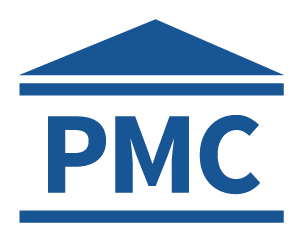Renaissance.Chad
Silver
- Joined
- Sep 7, 2020
- Posts
- 714
- Reputation
- 1,246
If you're still a teenager, check this out: https://men-elite.com/2021/07/06/simple-diet-modifications-to-maximize-puberty/
What to be tall with a good V-taper? Milk will help you get there.
The yolk specifically contains small amounts of steroids, and all the good fats. Every cell in your body requires cholesterol for optimal function, so providing enough via eggs should help with optimizing cellular function and growth.
Carbohydrates are also essential for testosterone optimization, keeping cortisol in check and optimizing thyroid hormone, T3, production.
Cortisol inhibits proper pubertal progress in a variety of ways (R). Excess cortisol inhibits bone growth, muscle growth, testosterone production, brain development, etc. Eating enough carbohydrates will not only help to keep cortisol in check, but also optimize the testosterone to cortisol ratio.
Nutrients from organ meat
As already established, vitamins and minerals are essential for proper growth, and organ meat is one of the richest sources of it.
“HAZ (height-for-age Z score) was positively associated with intakes of energy, protein, carbohydrate, fat, vitamins A, D, E, B6, and B12, thiamin, riboflavin, niacin, calcium, and iron.” (R)
Diet and puberty
During puberty, lots of calories and nutrients are required for proper growth and development, such as protein, fats and cholesterol, and carbohydrates. But more importantly, micronutrients, such as calcium, zinc, B-vitamins, fat-soluble vitamins (A, D, E, and K2), etc. (R)
Milk
Milk has the most research behind it by far when it comes to pubertal growth and development. Several components of cow’s milk are suggested to stimulate growth: a high protein quality, bioavailable minerals (calcium, magnesium, potassium, zinc, etc.) that are important for growth, and perhaps even lactose itself.What to be tall with a good V-taper? Milk will help you get there.
Eggs
Eggs are a great source of protein, cholesterol and other fats and nutrients that are used for growth during puberty. Old school bodybuilders, popularized by Vince Gironda, consumed large amounts of eggs to promote growth. Usually around 6 daily and sometimes up to 36 fertile eggs on a daily basis.The yolk specifically contains small amounts of steroids, and all the good fats. Every cell in your body requires cholesterol for optimal function, so providing enough via eggs should help with optimizing cellular function and growth.
Oysters
Oysters are a powerhouse of nutrients that will help with growth, development, and testosterone production. Eating a can of oysters x2 weekly should give you all those hard to get minerals.Fruit
Carbohydrates are essential for optimal growth. It’s been shown that a ketogenic diet decreases linear growth in children (R, R, R).Carbohydrates are also essential for testosterone optimization, keeping cortisol in check and optimizing thyroid hormone, T3, production.
Cortisol inhibits proper pubertal progress in a variety of ways (R). Excess cortisol inhibits bone growth, muscle growth, testosterone production, brain development, etc. Eating enough carbohydrates will not only help to keep cortisol in check, but also optimize the testosterone to cortisol ratio.
Meat/organ meat
The reason why organ meat is so great is because it’s one of the richest sources of vitamins and minerals, as you can see above. So rich that you literally only have to eat it once a week. But, I still prefer to eat certain organ meat more than once a week. If it’s beef or lamb liver, then only once a week. If it’s chicken liver, then x3 weekly. If it’s heart or kidney, it can be consumed daily.Nutrients from organ meat
As already established, vitamins and minerals are essential for proper growth, and organ meat is one of the richest sources of it.
“Six months of vitamin A supplementation induced growth acceleration similar to that seen in the oxandrolone- and testosterone-treated children… Boys in the nutritional programmes received 12 mg/day iron and 6000 IU/week of vitamin A.” (R)
“HAZ (height-for-age Z score) was positively associated with intakes of energy, protein, carbohydrate, fat, vitamins A, D, E, B6, and B12, thiamin, riboflavin, niacin, calcium, and iron.” (R)



